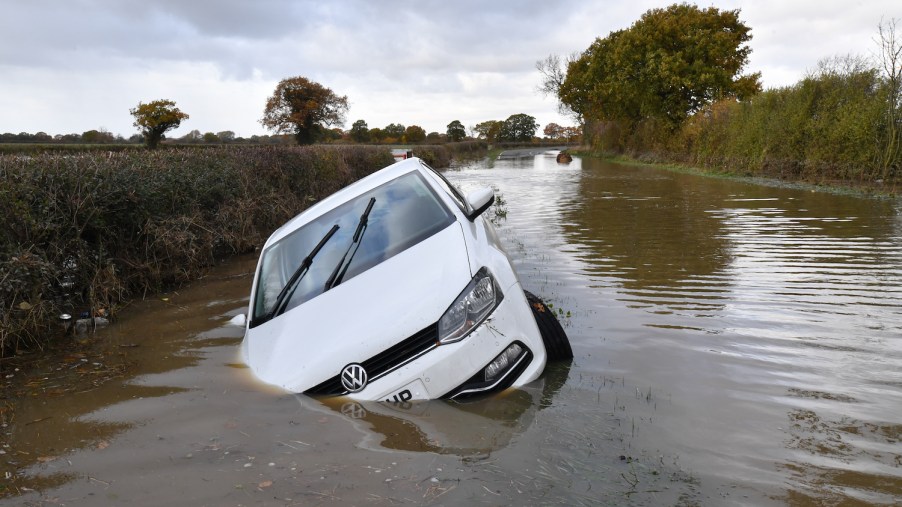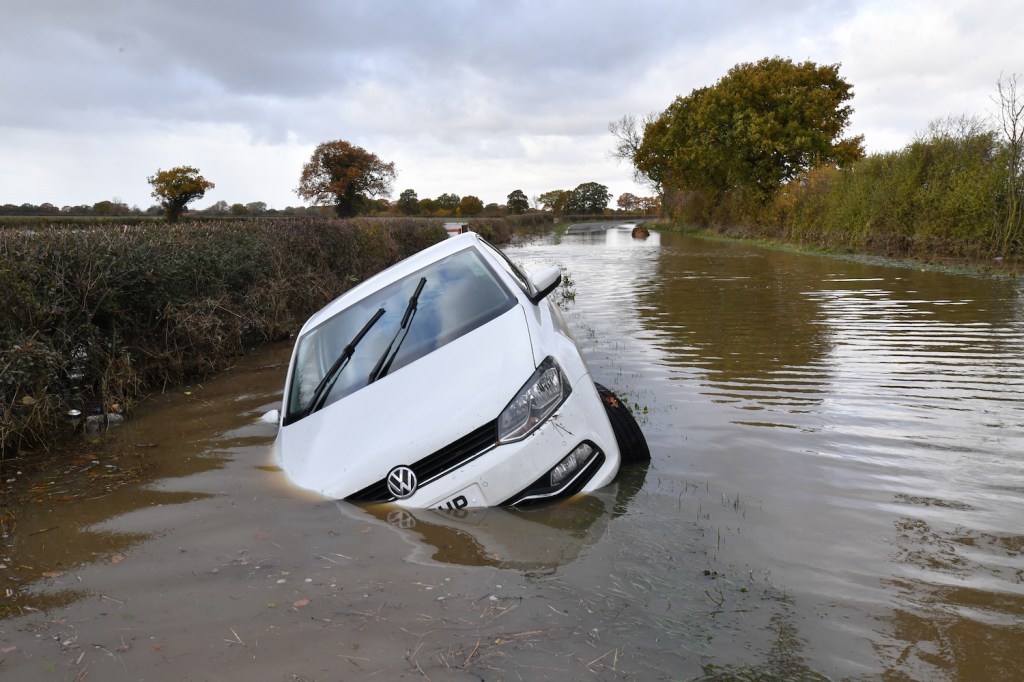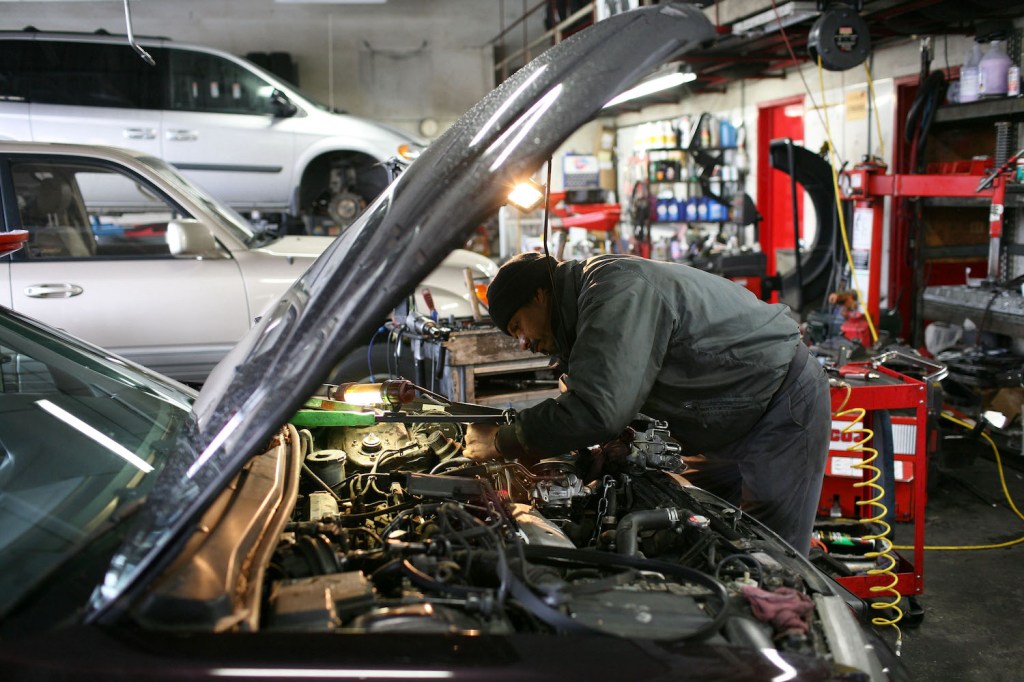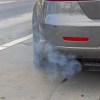
Is Buying a Flood-Damaged Car Worth the Risk?
Every year, thousands of cars are damaged by floods. Many of those damaged cars are then repaired and sold at dealerships in other parts of the country. But does that mean you should ever consider buying a flood-damaged car? Not necessarily. In fact, when it comes to flooded cars, buying one isn’t worth the risk. Let’s find out why.
Are flood-damaged cars sold at dealerships?
Thousands of vehicles are damaged by floods every year, says Consumer Reports. And while you might think those flood-damaged cars wash up primarily at junkyards, that’s not always the case. In fact, as it turns out, some flooded cars are repaired and resold at car dealerships in other parts of the country.
According to Consumer Reports, that’s because flood-damaged cars are often transported to locations where car shoppers may not be aware of what warning signs to look for when buying a vehicle that’s been damaged in a flood. The problem, however, is that water can ruin a vehicle’s electronics, lubricants, and even its mechanical systems. And those problems? They can “haunt buyers for the life of the car,” says Consumer Reports.
In fact, John Ibbotson, Consumer Reports’ chief mechanic, recommends avoiding new or used vehicles with any sign of flood damage “even if a vehicle looks acceptable and may be working when you inspect it.” Fortunately, spotting a flooded vehicle isn’t all that difficult. Keep an eye out for telltale signs of flood damage, including wet carpets, mud, and debris in the gaps between panels in the trunk and under the hood, along with any signs of rust. Consider having the car inspected by a mechanic too.
What problems do flooded cars have?

There’s really no beating around the bush here. Flooded vehicles have plenty of problems to contend with. In fact, according to Market Watch, the moisture from flood damage can short a car’s electrical system. It can also compromise safety features like airbags and anti-lock brakes. That’s not all, either. Flooded cars can also develop mildew and mold, which, for many, can trigger everything from allergic reactions to asthma attacks.
Flood damage can affect a vehicle’s engine too. In fact, cars these days come equipped with thousands of wires, relays, sensors, and computers, Advance Auto Parts reports. And, as you might have guessed, those parts aren’t designed to take on water. So too much of it? It can certainly harm the car’s engine.
How hard is it to fix a flood-damaged car?

Let’s say you come across a flood-damaged car at your local dealership. It’s the make and model that you’ve always dreamed of owning and is being sold for an unbeatable price. You may find yourself asking how hard it is to fix a flood-damaged car? While some flooded cars are fixable, that’s not always the case, at least not according to HowStuffWorks.
“Rain water isn’t as damaging as salt water, and so this can prove to be a major deciding factor in choosing whether to repair your car. That being said, only experienced mechanics should be trusted with the task,” explains HowStuffWorks.
However, keep in mind that if you do buy a flooded vehicle, water damage can be pretty unpredictable. In fact, according to Chris Basso, a spokesman for Carfax, “Sooner or later that car is going to die and the last thing you want is for that to happen while you’re driving it. You’ve got a ticking bomb on your hands.”
Should you ever buy a flood-damaged car?
If you’re in the market for a new or used vehicle and have the budget to buy one that hasn’t been affected by a flood, then, by all means, do it. Buying a flood-damaged car can make for a risky purchase, and if you don’t want to deal with flood-related problems? Then buying a flood-damaged vehicle isn’t worth the risk.



